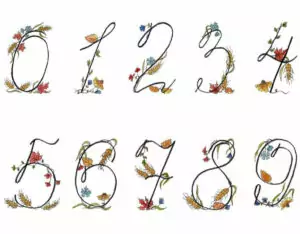Birthdays are special occasions that bring joy and celebrations to people around the world. One cherished tradition is singing the “Happy Birthday” song, which varies across different cultures. In German-speaking countries, there are two popular songs that add a unique touch to birthday festivities. In this article, we will dive into the German Happy Birthday song, its lyrics, and the cultural significance it holds.

✅ AI Essay Writer ✅ AI Detector ✅ Plagchecker ✅ Paraphraser
✅ Summarizer ✅ Citation Generator
The Basic German Happy Birthday Song
The German version of the “Happy Birthday” song retains the same melody as the English one, making it easy to learn and sing. Let’s explore the lyrics and meaning behind this beloved song:
Zum Geburtstag viel Glück,
Happy Birthday to You,
Zum Geburtstag liebe (name),
Happy Birthday dear (name).
This simple translation captures the essence of wishing someone a happy birthday in German. While the English version is more commonly heard, even at German-speaking gatherings, learning the German lyrics adds a delightful touch to celebrations.
“Wie schön, dass du geboren bist” – A Popular German Birthday Song
Another captivating birthday song in German is “Wie schön, dass du geboren bist” (“How nice that you were born”). This song holds immense popularity and has even gained the status of a folk song. Let’s explore its origins and lyrics:
Origins and Background
Written by Rolf Zuckowski, a renowned musician and producer from Hamburg, “Wie schön, dass du geboren bist” was composed in 1981. Zuckowski, known for his work in creating children’s songs, has left an indelible mark on German music. This song, often sung in childcare facilities, schools, and private birthday parties, captures the joy of celebrating a person’s birth.
Lyrics and Meaning
The lyrics of “Wie schön, dass du geboren bist” convey a heartfelt message:
Heute kann es regnen, stürmen oder schnei’n, denn du strahlst ja selber wie der Sonnenschein.
Heut ist dein Geburtstag, darum feiern wir,
alle deine Freunde, freuen sich mit dir.
These lyrics beautifully describe the celebratory atmosphere of a birthday. They emphasize that regardless of the weather outside, the radiance of the birthday person shines like sunshine. The verse highlights the joy of being surrounded by friends who eagerly join in the celebration.
Refrain:
Wie schön, dass du geboren bist, wir hätten dich sonst sehr vermisst.
Wie schön, dass wir beisammen sind, wir gratulieren dir, Geburtstagskind!
The refrain reinforces the sentiment of the song, expressing gratitude for the person’s existence and celebrating the togetherness of the occasion. It reminds us that the world would be incomplete without the birthday person and conveys warm wishes and congratulations.
Cultural Significance of the German Happy Birthday Songs
The German Happy Birthday songs hold a significant place in the country’s cultural celebrations. They provide an opportunity for people to express their affection and appreciation for loved ones on their special day. These songs also foster a sense of community and togetherness as friends and family join in the joyful singing.
Conclusion
The German Happy Birthday songs, both the translated version of the familiar “Happy Birthday” song and the beloved “Wie schön, dass du geboren bist,” add a touch of uniqueness to birthday celebrations in German-speaking countries. By learning and singing these songs, individuals can connect with the rich cultural heritage and express their heartfelt wishes to those celebrating their birthdays. So, let’s embrace the joyous melodies and celebrate with enthusiasm as we sing the German Happy Birthday songs to make someone’s special day even more memorable.
FAQ
Are there different regional variations of the German Happy Birthday song?
Yes, Germany has diverse regional cultures, and as a result, there are some regional variations of the German Happy Birthday song. These variations may include slight differences in lyrics or melodies, reflecting the unique traditions and dialects of specific regions.
Are there any other popular German birthday songs?
Yes, apart from the well-known “Happy Birthday” song and “Wie schön, dass du geboren bist,” there are other popular German birthday songs. One example is “Viel Glück und viel Segen” (“Lots of Luck and Many Blessings”), a joyful song often sung at birthday gatherings and religious celebrations.
Can I learn the German language by singing the Happy Birthday song?
Singing the Happy Birthday song in German allows you to become familiar with basic German vocabulary and pronunciation. It helps you internalize common phrases and expressions while immersing yourself in the musicality of the language. Additionally, the process of memorizing and practicing the lyrics can improve your overall language retention and fluency.
To gain a more comprehensive understanding of the German language, it is advisable to explore a variety of learning materials, engage in conversations with native speakers, and participate in language classes or online courses tailored to your learning needs.
Follow us on Reddit for more insights and updates.





Comments (0)
Welcome to A*Help comments!
We’re all about debate and discussion at A*Help.
We value the diverse opinions of users, so you may find points of view that you don’t agree with. And that’s cool. However, there are certain things we’re not OK with: attempts to manipulate our data in any way, for example, or the posting of discriminative, offensive, hateful, or disparaging material.